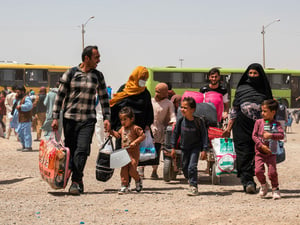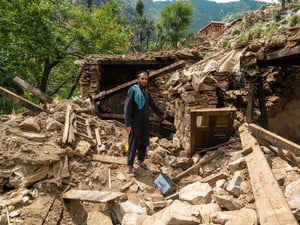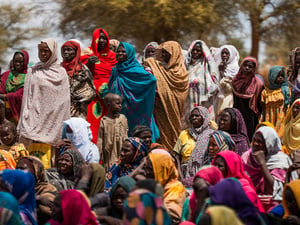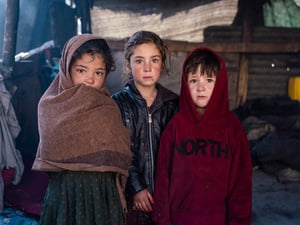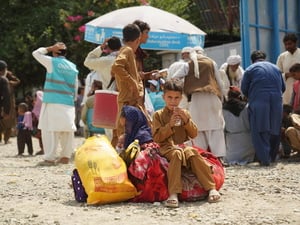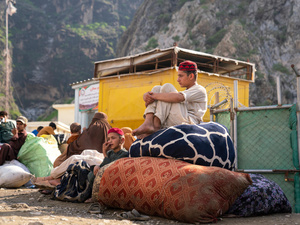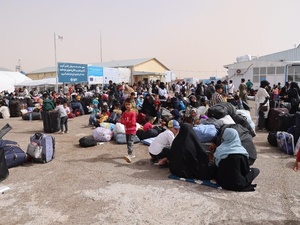Afghan relief effort marred by security incidents
Afghan relief effort marred by security incidents
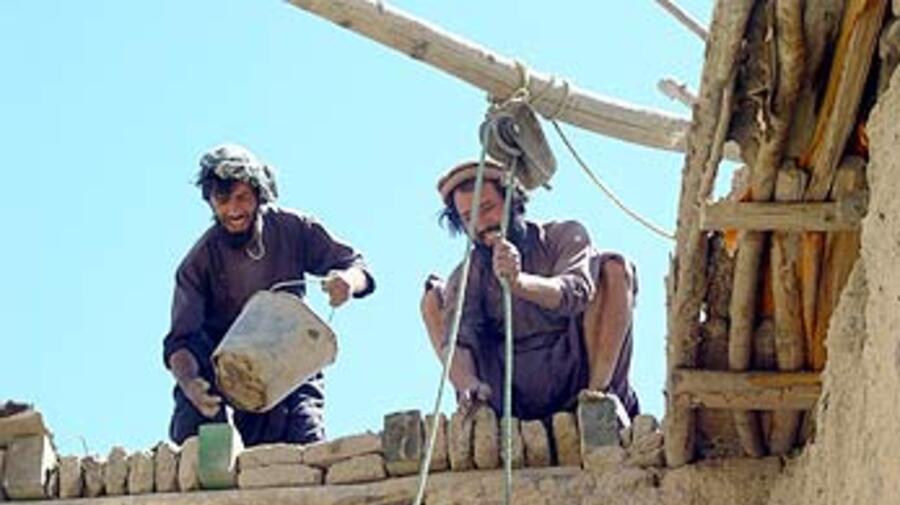
Despite insecurity in parts of Afghanistan, repatriation and rehabilitation continue unabated in Estalif village in the Shomali Plain.
KABUL, Afghanistan, August 15 (UNHCR) - A rocket attack on a UN refugee agency office in eastern Afghanistan forced UNHCR to temporarily cease activities in Kunar province earlier this week, highlighting a fragile security situation in some areas of the country amid significant refugee returns.
On Friday, UNHCR reported that more than 390,000 refugees have repatriated to Afghanistan so far this year, one of the largest refugee returns the country has seen in a decade. But the agency fears that success of the massive repatriation could be marred by a spate of attacks on aid workers and other Afghans that have hindered relief activities in some areas.
Earlier this week, UNHCR's Asadabad field office in Kunar province was targeted by assailants who fired a rocket at the building. Though the missile landed some 400 metres short of its goal, the agency opted to temporarily close the facility and to relocate seven staff to neighbouring Nangarhar province.
Other aid workers have not been so fortunate in escaping the recent wave of violence. Two Afghan Red Crescent staff members were killed on Wednesday. A driver with Mercy Corps was killed a week ago, while 10 workers with the local agency, Coordination Humanitarian Assistance, were badly beaten in a separate incident in early August.
Scores of other Afghan civilians have also reportedly been killed or wounded in attacks occurring almost daily.
Meanwhile, Afghan refugees continue to return home, although repatriation levels are half what they were a month ago, when up to 20,000 Afghans were heading homewards each week from neighbouring Pakistan and Iran.
In all, more than 2.3 million Afghan refugees have gone home since 2001 under the joint UNHCR/Afghan government programme, leaving behind what UNHCR estimates is a similar number of refugees in Pakistan and Iran, the two main asylum countries for Afghans.
The UN refugee agency does not promote repatriation due to the lack of security in some areas of Afghanistan, as well as the country's dependence on food and other humanitarian aid, but it does assist those who wish to go back.
More than a quarter million refugees have left Pakistan so far this year, while more than 136,000 have left Iran, including more than 55,000 who repatriated spontaneously. Another 440 Afghans have gone back from 14 other countries with UN help, with returns from countries as distant as Brazil, Malaysia and Cambodia.
To aid returning refugees arriving at its encashment/distribution centres throughout Afghanistan, UNHCR has distributed more than 57,000 kits containing basic assistance items so far this year. Among the items distributed to date are more than 78,000 plastic tarpaulins, 124 metric tons of soap, and 80,000 metres of hygiene cloth. The UN World Food Programme (WFP) has distributed more than 6,000 metric tons of wheat to returning families to cushion their return.
Relief assistance and security often come hand in hand, noted UNHCR in an Afghanistan update issued today in Geneva. Afghanistan's economic and social problems are very much linked to insecurity in some rural areas where needs are greatest, but also where aid workers face serious security problems.
The UN refugee agency has 31 offices throughout Afghanistan, with 782 staff, including 87 international aid workers. UNHCR's 2003 budget amounts to $185 million to assist Afghan returnees and refugees in neighbouring countries. The agency has so far received $115 million from its donors.

